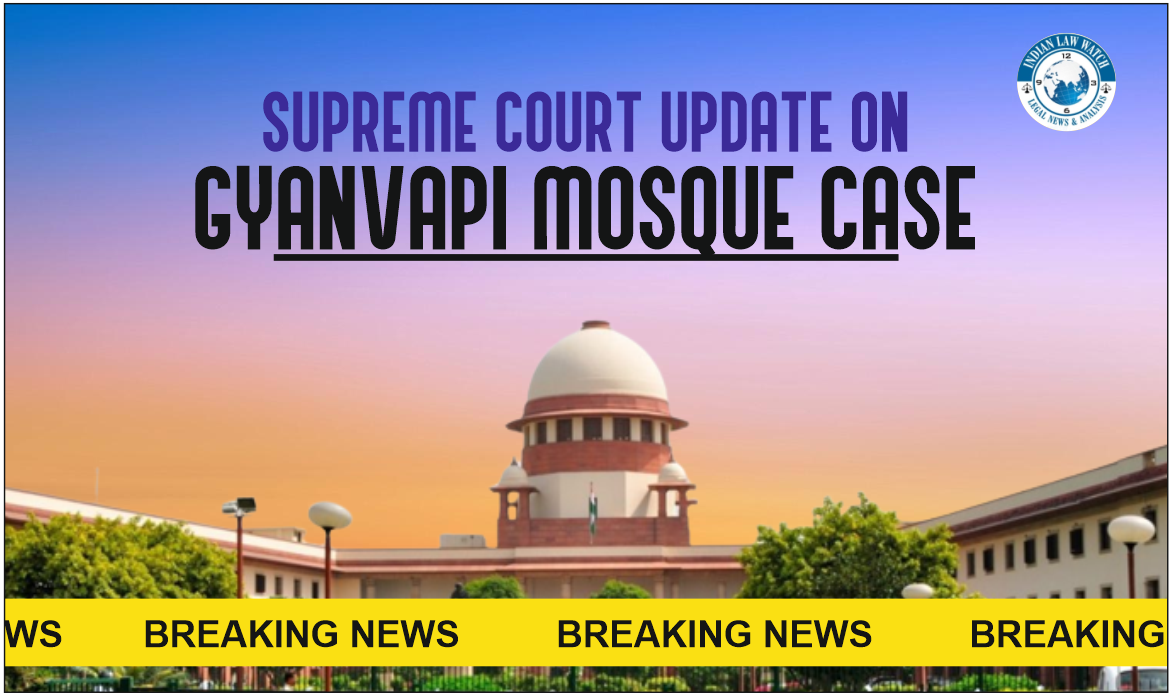
The Supreme Court on Tuesday directed that the area where the shivling was found — as claimed by lawyers representing the Hindu petitioners — be duly protected, reported Live Law. The top court also said that the direction does not restrain or impede access of Muslims to the mosque or use of it to perform prayers.
The Court also clarified that Muslims will be allowed to perform wazu (cleansing) since it is part of religious observations.
The top court also issued notices to Hindu petitioners and Uttar Pradesh government, directing them to file their response by May 19.
“Is wazu not religious observance? We are protecting it,” the Court orally remarked when Senior Counsel Huzefa Ahmadi, appearing for the Muslim party, asked for specific direction to protect wazu.

The bench comprising Justices DY Chandrachud and PS Narasimha directed that Varanasi district magistrate shall ensure that the area where the Shivling is reported to be found, shall be duly protected.
The top court refused to stay further proceedings before civil judge Varanasi hearing lawsuit related to the Gyanvapi mosque. It also issued notices to Hindu petitioners and Uttar Pradesh government, directing them to file their response by May 19.

“We have excluded the three reliefs sought in the application. We have protected the spot where the shivling was found. And we have clarified that this will not restrict the rights of Muslims. I think this is a balance,” Justice Chandrachud told Huzefa Ahmadi, appearing for the mosque committee.
 The Supreme Court was hearing a plea by the Committee of Management of Anjuman Intezamia Masjid, Varanasi, challenging the videography survey ordered by a local court of the Maa Shringar Gauri Sthal in the complex. The Muslim body contends that it is contrary to provisions of the Places of Worship (Special Provisions) Act 1991. The Hindu Sena President has filed an intervention in the apex court, seeking a dismissal of the appeal by the Muslim party.
The Supreme Court was hearing a plea by the Committee of Management of Anjuman Intezamia Masjid, Varanasi, challenging the videography survey ordered by a local court of the Maa Shringar Gauri Sthal in the complex. The Muslim body contends that it is contrary to provisions of the Places of Worship (Special Provisions) Act 1991. The Hindu Sena President has filed an intervention in the apex court, seeking a dismissal of the appeal by the Muslim party.
The plea by the Committee of Management of Anjuman Intezamia Masjid, Varanasi, argued that the fresh suits filed in 2021 citing the “right to Worship” were “barred by the 1991 Places of Worship Act” and were an attempt to revive the dispute which had been put to rest by this law.
The mosque committee has argued that a similar title suit was filed in 1991 and has remained stayed under the orders of the Allahabad high court since then. These fresh pleas, according to the mosque committee, are an “attempt to circumvent the stay”.
The Allahabad High Court, in its April order, had allowed the survey to continue, holding that “mere survey” could “not affect the legal rights of either party”. The mosque committee has, however, argued that by allowing the court commissioner to conduct the survey, the rights created by the 1991 Places of Worship Act were violated.
Last Friday, the top court had refused to grant an interim order of status quo on the survey. The top court, however, agreed to consider listing the plea of a Muslim party against the survey. Three court-appointed advocate commissioners, five lawyers each from the two sides and an assistant besides a videography team carried out the survey.
The mosque is located close to the iconic Kashi Vishwanath temple and the local court is hearing a plea by a group of women seeking permission for daily prayers before the idols on its outer walls.
Meanwhile, a Varanasi court on Tuesday granted two days’ time to the court-appointed panel to submit its report on the videography survey of the mosque which concluded on Monday morning.
Just hours after the conclusion of the survey, the local court had yesterday ordered the sealing of a pond in the Gyanvapi Masjid complex after lawyers representing the Hindu petitioners said a Shivling was found there during the court-mandated videography survey.
However, a mosque management committee member disputed the claim, saying the object was part of the water fountain mechanism at the wazookhana reservoir where devotees carry out ablutions before offering namaz.
Source : Financial Express






